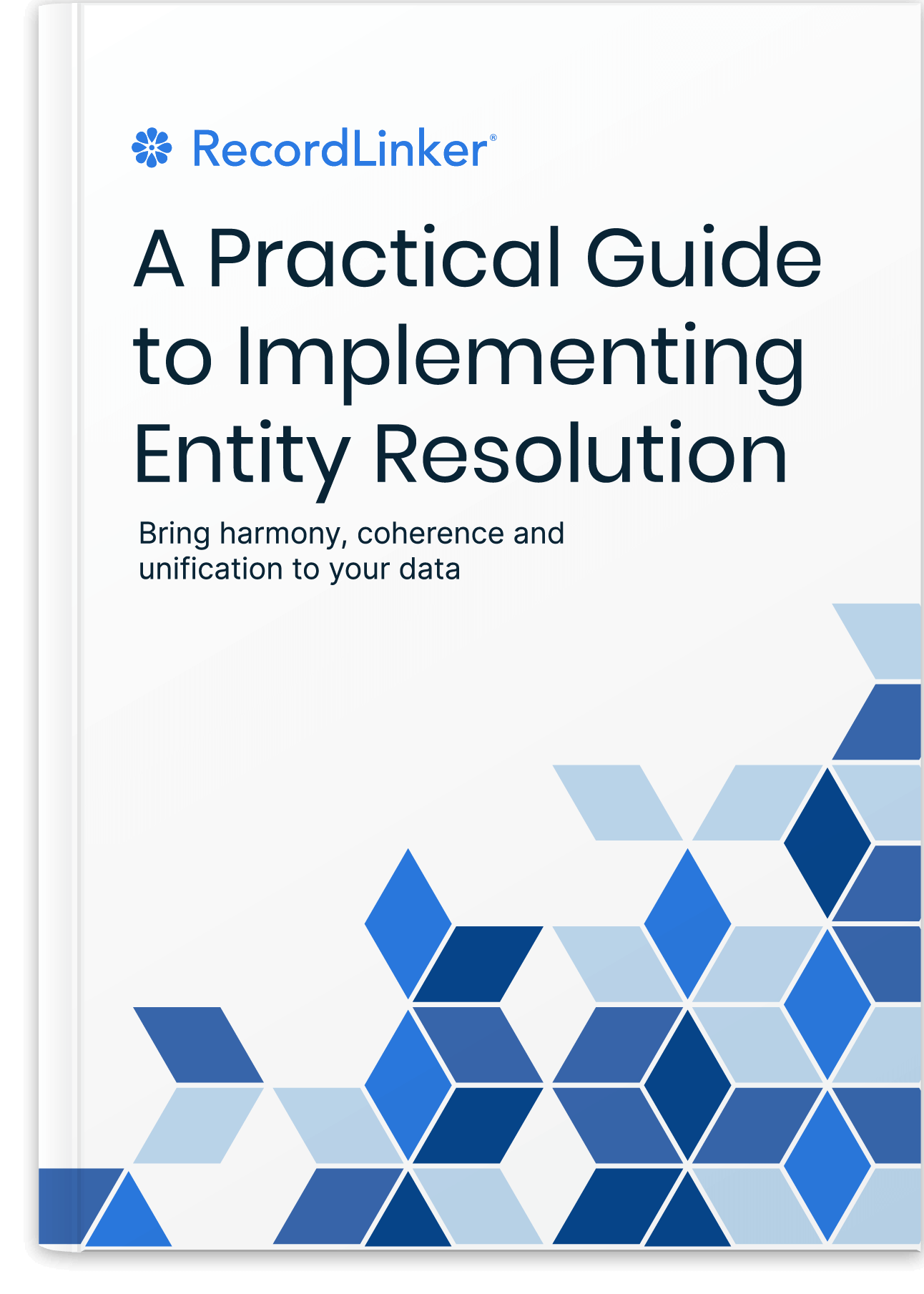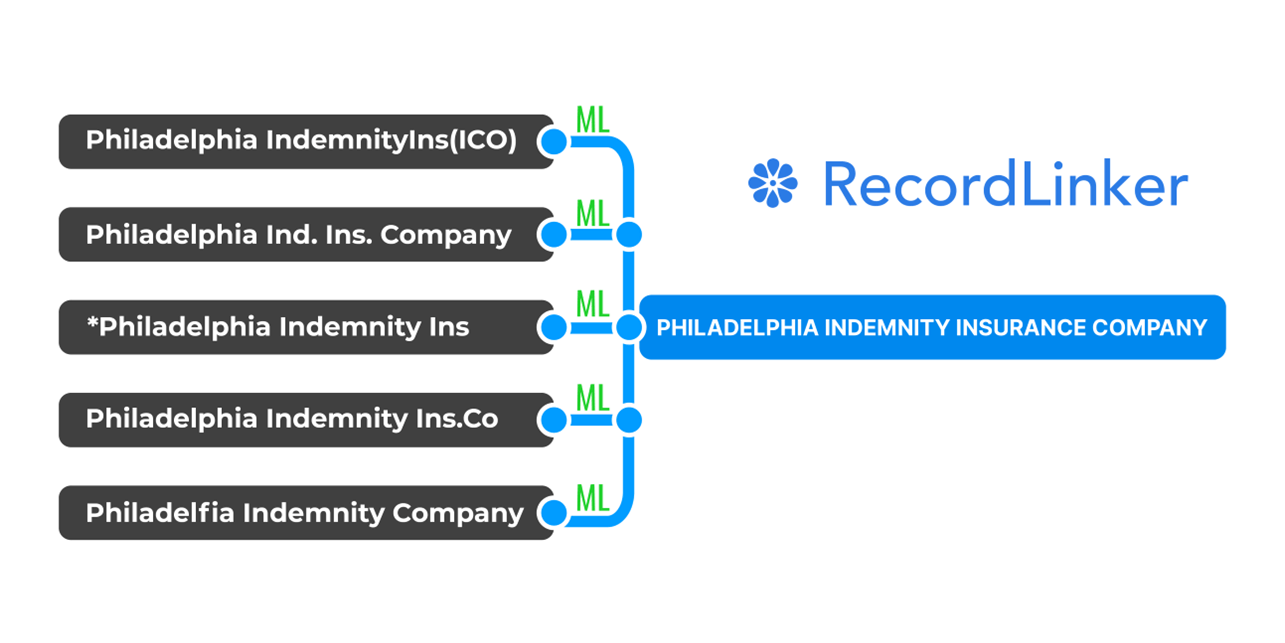The Difference Between Data Governance vs MDM

The efficient management of data is necessary for success and growth. Across industries, organizations collect volumes of data daily, including customer profiles, vendors, product information, coverage names, issuing papers, and more.
Without organized management, this wealth of data can quickly transform into a liability, hindering decision-making and impeding progress.
Data Governance vs MDM: What’s the Difference?
Data Governance establishes rules governing data usage, access, and security. It creates policies ensuring data is managed consistently and securely. This framework typically operates through a dedicated governance committee with clear authority.
Master Data Management provides technical capabilities to maintain consistent versions of core business entities across systems. It delivers the practical mechanisms for creating reliable reference data. MDM relates to the concept of a Single Source of Truth, though whether that’s achievable or even desirable depends on your specific context.
MDM programs often make use of data quality and cleansing techniques to ensure that the data in the repository is accurate and useful.
The key difference lies in focus:
- Data Governance is about
rules,policies,protocols,access control,responsibilities, andculturearound data. - MDM is more about actual
technical executionandautomation of data managementfor the most critical data assets.
They share a common goal of ultimately making your data accurate, consistent by proper maintenance and management.
The Essential Distinction: Rules vs. Tools for Data Quality
What is Data Governance?
Data Governance treats data as a strategic asset. It controls how data moves through your organization, how people use it, and how you protect data.
Data Governance framework ensures consistency and security across the data lifecycle. It defines access rights, ownership, handling and storage protocols, as well as measures to prevent breaches or misuse.
Consider a company implementing governance for vendor information. Their framework might establish:
- which departments can create vendor records.
- who maintains vendor contact details.
- the approval process for changing record information.
- how often vendor data undergoes review.
- required compliance checks before onboarding suppliers.
Such frameworks create necessary guardrails but will not be able to technically address how existing records with different IDs and naming conventions should reconcile across systems.
A manufacturing company may illustrate this problem. The entity ‘Acme Industrial Solutions, Inc.’ exists as:
‘Acme Industrial'in purchasing (ID:V-3921)'ACME IND SOLUTIONS'in accounts payable (ID:28940)'Acme (Industrial Division)'in contract management (ID:AIS-2022)
Instead, Data Governance establishes who should fix this problem, whether to merge these as a single entity, what the standard naming convention should be, or even whether to reassign specific linked vendor records to new owners upon linkage.
What is Master Data Management?
Master Data Management (MDM) provides specific technical tools for managing critical business data consistently. Unlike governance, which creates the overall framework, MDM focuses on the actual mechanisms for managing master data and enforcing data rules.
Large organizations with advanced data ecosystems get optimal results when Governance and MDM work together as complementary approaches rather than competing ones.
Is MDM Part of Data Governance?
This common question reveals a basic misconception. MDM is not a subset of governance, though they maintain a symbiotic relationship.
A more accurate model sees them as parallel disciplines that interact continuously:
- Data Governance defines
quality standardsfor master data. - MDM implements
mechanismsto achieve those standards. - Governance establishes
ownershipand data stewardship roles. - MDM provides the
toolsthese stewards will often use or guide.
When Organizations Need Data Governance
Organizations need governance when they face challenges requiring formal control over information assets. Unlike tactical data management, governance addresses the fundamental structures needed to treat data as a strategic resource.
Organizations typically need governance when facing:
Regulatory compliance requirements that demand documented control over sensitive information. Financial institutions must demonstrate how they protect customer data, while healthcare providers need clear policies for safeguarding protected health information.
Cross-functional data conflicts where departments define core entities differently. When sales, finance, and operations each define active product differently, governance provides the authority to create standardized definitions.
Decision-making uncertainty from contradictory data sources. When executives receive different customer counts from various departments, governance establishes which figures should drive planning decisions.
Data Governance programs often include data quality management initiatives. However, Data Governance can be very complex and time-consuming to implement due to its broad scope.
Data Governance programs require significant investment and coordination. They need executive sponsorship (or buy-in), clear business outcomes rather than abstract quality goals, and right-sized approaches that match organizational maturity.
Robust Data Governance is not the right solution for every single organization.
If you’re stuck on whether to implement Data Governance or MDM, think through the costs and benefits.
At the same time, it is always worthwhile to keep your data highly organized. Avoiding messy data is essential for businesses to grow and move fast.
When Organizations Need MDM Solutions
Organizations implement MDM capabilities to solve specific technical problems that governance alone cannot address. These solutions work best when focused on concrete business challenges.
Technical MDM solutions make sense when facing:
Disconnected systems containing separate versions of the same entities. When customer information exists in e-commerce, CRM, and loyalty systems without connections, organizations need solutions that recognize the same customer across platforms.
System migration bottlenecks occur during paricularly advanced post-acquisition integration or system replacement. Many organizations face critical delays waiting for traditional migration tools to handle entity mapping at scale. Many industries face similar hurdles when consolidating customer, product, or vendor records across disconnected systems.
When building a data mart, you’ll inevitably discover inconsistencies in how different source systems format data: product codes, company names, or location names. Addressing these inconsistencies requires technical solutions beyond governance frameworks.
Much like Data Governance, Master Data Management requires the leadership of a cross-departmental team in order to be successful.
Unlike governance, which addresses organizational behavior, MDM solves concrete technical problems. Organizations often try to implement MDM solutions to address specific pain points rather than as comprehensive enterprise initiatives.
A Warning About MDM Implementation
Traditional MDM approaches disappoint businesses expecting transformative results. The classic model – building centralized repositories that serve as authoritative sources – rarely delivers promised benefits.
When Organizations Need MDM Solutions
Organizations implement MDM capabilities to solve specific technical problems that governance alone cannot fix. These solutions work best when focused on concrete business challenges.
The Root Causes of MDM Disappointment
Master Data Management is warranted when there are multiple overlapping data challenges or your entire data ecosystem is particularly complex – but it needs to allow for fairly rigid centralization for MDM to succeed.
MDM initiatives fail because they build on unrealistic expectations.
MDM initiatives assume organizations need comprehensive repositories. The ‘single source of truth’ sounds compelling but creates artificial centralization that conflicts with legitimate business operations. Each department may need different attributes and relationships for the same entity.
MDM projects demand significant upfront investment before delivering value. Traditional MDM implementations take years to show results. Organizations spend millions building elaborate data models and governance structures before solving a single concrete business problem.
They can disrupt functioning processes. Large-scale MDM initiatives often force standardization that doesn’t reflect business reality. What appears as “inconsistency” often represents legitimate variations in how different business units operate.
You often shouldn’t impose uniform product definitions across divisions with fundamentally different business needs. A highly centralized approach won’t accommodate legitimate variations in, for example, how different markets define products.
These limitations have led to MDM’s reputation for high failure rates and questionable ROI. The most successful implementations now focus on solving selected business problems rather than pursuing theoretical data perfection.
When You Don’t Need Comprehensive MDM or Governance Framework
Not every organization needs full-scale MDM or robust governance. Many companies achieve better results with targeted approaches to very specific data challenges. This pragmatic position recognizes business realities that enterprise vendors often ignore.
The Case for Tactical Data Management
Merger and Acquisition activity creates temporary integration needs rather than requiring permanent connections. When you plan to migrate acquired systems’ data and eventually decommission them, building permanent MDM bridges wastes resources. Focus on one-time data migration tools that respect your destination system as the authority.
Resource constraints affect most mid-sized organizations. Without dedicated data teams, attempting comprehensive governance creates bureaucracy without execution capability. Better to focus available talent on solving immediate data quality problems that directly impact operations.
System-specific operational requirements often resist standardization. Different business units maintain separate systems because they serve distinct purposes with unique data models. Forcing artificial alignment creates friction without delivering proportional benefits.
The Technical Core: When Entity Resolution Matters
Let’s take a step back. If comprehensive MDM isn’t the answer for many organizations, what’s the alternative? The key lies in addressing the fundamental technical challenge underlying most data quality problems: entity resolution.
Entity resolution – identifying when different records represent the same real-world entity despite variations in format, content, and structure (e.g. relationships) – forms the technical foundation of both MDM initiatives and typical data accuracy problems. Solving this specific problem often delivers more immediate value than implementing end-to-end solutions.
The complexity exceeds what most organizations anticipate. Consider a single company name like ‘Philadelphia Indemnity Insurance Company’. In real-world systems, this entity might appear as:
Philadelphia Indemnity Insurance Co.Phil Indemnity InsurancePIICPhiladelphia Indemnity Ins CoPhila. Indemnity
These variations create a combinatorial explosion. A single entity name can generate hundreds of permutations through abbreviations, word order changes, punctuation differences, and spelling variations.
Traditional, deterministic matching approaches rapidly collapse under this complexity.
Most organizations attempt to solve this with three common methods, all of which fail at scale:
Exact matchingonly identifies perfect matches, missing the vast majority of equivalent records.- Basic
fuzzy logicgenerates excessive false positives while still missing many true matches. Manual matching and reviewscannot scale beyond a few hundred records and introduces human error.
You can only do so much using spreadsheets, VLOOKUP, XLOOKUP, and vintage conversion portals.
Do you know who’s happy mapping 1000 record pairs in Excel? We neither!
The technical challenge of entity resolution shows why both enterprise MDM and simple tactical approaches often fall short. Solving this problem requires specialized capabilities that address the specific mechanics of record matching – not comprehensive frameworks or simplistic automation.
Free Book: Practical Guide to Implementing Entity Resolution
Interested in implementing an in-house record matching solution with your own development team without using any outside vendors or tools?

Insurance: A Perfect Case Study of the Challenge
Insurance brokers illustrate this reality clearly. During agency acquisitions, they face a classic data integration challenge – mapping entities like carriers (issuing papers) and coverages between Agency Management Systems like Applied Epic and AMS360.
Data administrators struggle with a workflow that’s remarkably manual and error-prone:
The Unseen Data Heroes of Insurance – Listen to Our Guest Episode
Our founder, Roman Stepanenko, shares insights into challenges of data administrators and data conversion teams in insurance.
Discover the gaps in the process, and the reality of manual workflows of insurance's data people. They are some of the most hard-working and unnoticed 'silent teams'.
Data conversion analysts, business systems analysts, implementation specialists, and data admins keep large brokers going after agency acquisitions.
The data conversion process begins with waiting weeks for database backup restoration from the acquired agency’s system. This delay wastes valuable project time while migration deadlines remain fixed.
Once data becomes available, conversion specialists manually compare records across systems using Excel spreadsheets and outdated vendor portals. A single migration might involve matching thousands of entity pairs with minimal automation.
They create mapping files through tedious copy-paste operations that introduce inevitable errors. These errors often remain hidden until after migration completes, when policies suddenly appear under incorrect carriers.
A regional insurance broker described the real cost:
‘Our last acquisition required three weeks of overtime to manually match carrier names between systems. Despite that effort, we found dozens of errors after go-live that affected policy assignments.’
Traditional MDM would aim to build permanent connections between these systems. But this ignores reality: acquired systems will eventually be decommissioned. Creating sophisticated MDM infrastructure would waste resources to just complete a migration project and move to the next one.
Instead, successful brokers aim to solve these problems by:
- Enabling efficient, one-time mapping of entities from an acquired system.
- Generating appropriate conversion files – like Applied Systems’ OldNew report or Vertafore’s SmartMap import or sync.
- Validating data quality before final integration and
go-live. - Supporting the workflows of data conversion specialists.
This approach respects both business priorities and technical realities.

These challenges highlight how big theoretical data management approaches fail to address the practical realities of business operations.
The specialized talent of data administrators gets wasted on mechanical tasks while introducing substantial business risk through anticipated human errors.
Signs You Need Tactical Solutions, Not Enterprise Programs
Consider tactical approaches like the one above when:
- your primary challenge involves one-time or infrequent data migrations.
- you lack dedicated data teams with governance expertise.
- your systems serve distinct business functions with legitimate differences.
- you need
immediate resultsrather than long-term frameworks. - MDM implementation would overshoot your needs or overwhelm you resources-wise.
In these situations, focus on tools built for specific problems – entity resolution for system migrations, data cleansing for specific domains, or targeted validation for critical data assets.
Practical Outlook on Data Management Maturity
Most organizations don’t need to begin with comprehensive frameworks. Data management capabilities develop along a natural maturity curve:
- Address
immediate pain pointswith targeted solutions. - Develop
informal internal standardsandknowledge basebased on successful patterns. - Create lightweight governance for critical data domains by enabling data administrators.
- Expand governance organically as organizational capabilities mature.
This evolutionary approach delivers continuous value while avoiding the common failure pattern of governance programs: elaborate frameworks that exist on paper but not affecting day-to-day operations in a meaningful way.
Putting your data operations into a rigid framework may effectively slow you down.
You may want to create intelligent links between equivalent records while preserving the operational integrity of source systems rather than force strict centralization.
Building a Practical Approach to Data Management
The technical foundation of most data challenges comes back to entity resolution. Without solving this core problem, neither governance policies nor comprehensive MDM frameworks deliver promised results.
Let’s come back to the insurance example.
Insurance brokers’ experience with Agency Management System migrations post-M&A demonstrates this reality. When facing the critical task of mapping carriers and coverages between systems, what they need isn’t comprehensive governance or enterprise MDM.
They need practical solutions that:
- deliver quick time to value without waiting weeks for database backup restoration.
- support the actual workflows of data conversion specialists.
- handle the technical complexity of
entity matching at scale. - respect existing
system authorityrather than overrides it.
We developed RecordLinker specifically to address this gap between theoretical data management approaches and operational realities. By focusing precisely on the entity resolution problem, the platform transforms tedious, error-prone mapping processes into efficient workflows.
Unlike traditional MDM solutions that attempt to centralize data, RecordLinker works with your existing systems through lightweight API integration. It addresses the specific challenge of recognizing when different records represent the same entity across systems – without disrupting your established processes.
For insurance data administrators, this means mapping thousands of carrier names in days rather than weeks, validating matches before integration, and generating appropriate conversion files for vendor systems.
This targeted approach prioritizes the practical needs of the people doing the actual work rather than imposing rigid, theoretical strategy for data.
Balanced Perspective Between MDM, Data Governance, and Practice
Data Governance and Master Data Management represent complementary approaches that work best when tailored to specific business contexts. Neither provides a universal solution, and both require careful adaptation to organizational needs.
Clarity about specific data challenges gives you a stable path forward. Your strategy needs to be fit for your context.
If you face regulatory pressures or cross-functional conflicts over data definitions, Data Governance provides the organizational framework to address these challenges.
If you struggle with disconnected systems or migration bottlenecks, targeted technical solutions can address these problems without comprehensive MDM.
Most importantly, recognize that practical data management often lies between these approaches or even outside of them. By focusing on specific business problems and implementing targeted solutions, you can achieve substantial improvements without the complexity and risk of enterprise-wide initiatives.
In a world of complex data challenges, sometimes the most effective solution isn’t the most comprehensive.
It’s the one that solves your specific problem while respecting how your organization actually works.
RecordLinker embraces this pragmatic approach. Rather than building comprehensive repositories or governance frameworks, it addresses the specific entity resolution challenges that plague data migrations and system integrations. By focusing on the core problem – matching equivalent records across systems – it delivers immediate value while respecting existing system authority.
MDM vs Data Governance Wrapped Up
Data Governance and Master Data Management should work in harmony, not opposition. Your decision between them – how or whether to implement them – must flow from your specific business challenges.
Remember that organizations can also achieve great success with smaller-scope data management based on pragmatic approach:
- Focus on concrete business problems rather than abstract data ideals.
- Identify specific issues where better data quality directly impacts business outcomes.
- Respect system autonomy when different systems maintain distinct entity definitions for a reason.
Fighting this reality creates friction with marginal benefits.
Above all, prioritize user experience for data teams rather than imposing theoretical purity.
Data administrators need tools that support their workflows, not frameworks that disrupt them – especially when you want to move fast.
Suggested Reading About Data Management and Quality
Check our recommended reading list for helpful resources to help you establish good data practices in your organization. Proper data management is not simple – learn foundational concepts to discover helpful solutions to your data challenges.
- 5 Building Blocks of Master Data Management
- Master Data Management Implementation: Best Practices
- Matching Data in Excel: The Waste of Time
- Standardizing Names of Companies, Vendors, Suppliers, and More
- Customer Data Integration Benefits
- 10 Customer MDM Practices for Success
- Data Stewardship: The Backbone of Data Management
Take the Next Step for Matching Disparate Records and Maintaining Data
Want to improve your data quality without creating a comprehensive MDM program from scratch? RecordLinker is here to help. Our pluggable data conversion and management platform can quickly connect your disparate data sources, identify and deduplicate records, and help you keep your data clean and up-to-date – without the complexity and cost of traditional enterprise approaches.
RecordLinker addresses the entity resolution problem that undermines many data initiatives.
Rather than attempting comprehensive Data Governance or traditional end-to-end MDM, it provides a targeted solution that:
- works with your existing systems rather than overriding them.
- syncs with your systems through light integration based on
bi-directional API. - focuses on specific data conversion challenges with
immediate business impact. - supports the
workflowsof people handling data migration and standardization. - offers better data administration with
admin UI improvements,grouping of elements,bulk editing,listing your entities, providingfiltersandapprovals.





